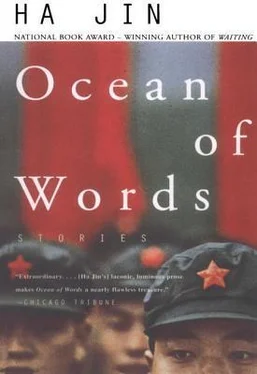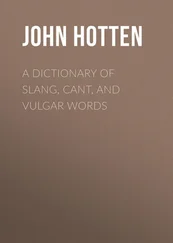Naturally Zhou became an enigma to his comrades, who were eager to figure out what he did downstairs. One afternoon Chief Huang had a talk with Zhou. He asked, “Why do you go to Director Liang’s home so often, Young Zhou?”
“I work for him.” Zhou would never reveal that he studied downstairs, because the chief could easily find a way to keep him busy at the station.
“What work exactly?”
“Sometimes little chores, and sometimes he wants me to read out Chairman Mao’s works and newspaper to him.”
“Really? He studies every day?”
“Yes, he studies hard.”
“How can you make me believe you?”
“Chief Huang, if you don’t believe me, go ask him yourself.” Zhou knew the chief dared not make a peep before the director. Huang had better keep himself away from Liang, or the old man would curse his ancestors of eight generations.
“No, it’s unnecessary. Zhou Wen, you know I’m not interested in what you do downstairs. It’s Secretary Si Ma Lin who asked me about what’s going on. I have no idea how he came to know you often stay in Director Liang’s home.”
“Thanks for telling me that, Chief Huang. Please tell Secretary Si Ma that Director Liang wants me to work for him.”
After that, the chief never bothered Zhou again, but Zhou’s fellow comrades didn’t stop showing their curiosity. They even searched through his suitcase and turned up his mattress to see what he had hidden from them. Zhou realized how lucky it was that he had put his Ocean of Words downstairs beforehand. They kept asking him questions. One would ask, “How did you get so close to Director Liang?” Another, “Does he pay you as his secretary?” Another would sigh and say, “What a pity Old Liang doesn’t have a daughter!”
It was true Director Liang had only three sons. The eldest son was an officer in Nanjing Military Region; the second worked as an engineer at an ordnance factory in Harbin; his youngest son, Liang Bin, was a middle school student at home. The boy, tall and burly, was a wonderful soccer player. One afternoon during their break from the telegraphic training, Zhou Wen, Zhang Jun, and Gu Wan were playing soccer in the yard behind the church when Liang Bin came by. Bin put down his satchel, hooked up the ball with his instep, and began juggling it on his feet, then on his head, on his shoulders, on his knees — every part of his body seemed to have a spring. He went on doing this for a good three minutes without letting the ball touch the ground. The soldiers were all impressed and asked the boy why he didn’t play for the Provincial Juvenile Team.
“They’ve asked me many times,” Bin said, “but I never dare play for them.”
“Why?” Gu asked.
“If I did, my dad would break my legs. He wants me to study.” He picked up his satchel and hurried home.
Both Zhang and Gu said Director Liang was a fool and shouldn’t ruin his son’s future that way. Zhou understood why, but he didn’t tell them, uncertain if Director Liang would like other soldiers to know his story, which was profound indeed but not very glorious.
Every day the boy had to return home immediately after school, to study. One evening Zhou overheard Director Liang criticizing his son. “Zhou Wen read The Three Kingdoms under the road lamp. You have everything here, your own lamp, your own books, your own desk, and your own room. What you lack is your own strong will. Your mother has spoiled you. Come on, work on the geometry problems. I’ll give you a big gift at the Spring Festival if you study hard.”
“Will you allow me to join the soccer team?”
“No, you study.”
A few days later, Director Liang asked Zhou to teach his son, saying that Zhou was the most knowledgeable man he had ever met and that he trusted him as a young scholar. Zhou agreed to try his best. Then Liang pulled a dog-eared book out of his pocket. “Teach him this,” he said. It was a copy of The Three-Character Scripture .
Zhou was surprised, not having expected the officer wanted him to teach his son classical Chinese, which Zhou had merely taught himself a little. Where did Liang get this small book? Zhou had heard of the scripture but never seen a copy. Why did a revolutionary officer like Liang want his son to study such a feudal book? Zhou dared not ask and kept the question to himself. Neither did he ever mention the scripture to his comrades. Instead he told them that Director Liang ordered him to teach his son Chairman Mao’s On Practice , a booklet Zhou knew well enough to talk about in their political studies. Since none of his comrades understood the Chairman’s theory, they believed what Zhou told them, and they were impressed by his comments when they studied together.
As his demobilization drew near, Zhou worried desperately and kept asking himself, What will you do now? Without the Party membership you won’t get a good job at home, but how can you join the Party before leaving the army? There are only five weeks left. If you can’t make it by the New Year, you’ll never be able to in the future. Even if you give the dictionary to Secretary Si Ma now, it’s already too late. Too late to do anything. But you can’t simply sit back waiting for the end; you must do something. There must be a way to bring him around. How?
After thinking of the matter for three days, he decided to talk to Director Liang. One evening, as soon as Zhou sat down in the room, the old man rushed in with snowflakes on his felt hat. “Little Zhou,” he said in a thick voice, “I came to you for help.”
“How can I help?” Zhou stood up.
“Here, here is Marx’s book.” Liang put his fur mitten on the desk and pulled a copy of Manifesto of the Communist Party out of it. “This winter we divisional leaders are studying this little book. Vice Commissar Hou gave the first lecture this afternoon. I don’t understand what he said at all. It wasn’t a good lecture. Maybe he doesn’t understand Marx either.”
“I hope I can help.”
“For example,” Liang said, putting the book on the desk and turning a few pages, “here, listen: ‘An apparition — an apparition of Communism — has wandered throughout Europe.’ Old Hou said an apparition is a ‘spook.’ Europe was full of spooks. I wonder if it’s true. What’s an ‘apparition,’ do you know?”
“Let’s see what it means exactly.” Zhou took his Ocean of Words out of the drawer and began to turn the pages.
“This must be a treasure book, having all the rare characters in it,” Liang said, standing closer to watch Zhou searching for the word.
“Here it is.” Zhou lifted the dictionary and read out the definition: “ ‘Apparition — specter, ghost, spiritual appearance.’ ”
“See, no ‘spook’ at all.”
“ ‘Spook’ may not be completely wrong for ‘apparition,’ but it’s too low a word.”
“You’re right. Good. Tomorrow I’ll tell Old Hou to drop his ‘spook.’ By the way, I still don’t understand why Marx calls Communism ‘an operation.’ Isn’t Communism a good ideal?”
Zhou almost laughed out loud at Liang’s mispronunciation, but controlled himself and said, “Marx must be ironic here, because the bourgeoisie takes the Communists as poisonous snakes and wild beasts — something like an apparition.”
“That’s right.” Liang slapped his paunch, smiling and shaking his head. “You see, Little Zhou, my mind always goes straight and never makes turns. You’re a smart young man. I regret I didn’t meet you earlier.”
Here came Zhou’s chance. He said, “But we can’t be together for long, because I’ll leave for home soon. I’m sure I will miss you and this room.”
“What? You mean you’ll be discharged?”
Читать дальше











